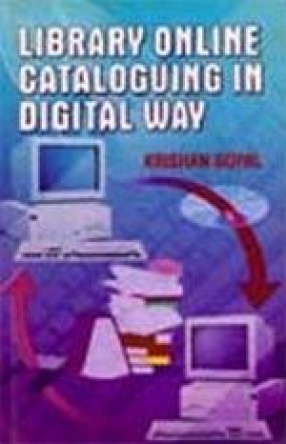
Krishan Gopal

Showing all 12 books

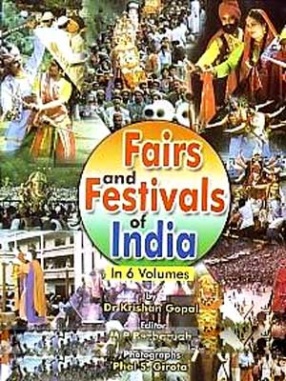

In implementing today's online catalogues, librarians are having to make complex decisions about catalogue user behaviour and needs. Even apparently simple choices, such as placing a subject search option before an author in an open menu, can have important implications for the user. Librarians accustomed to the traditional catalogue may find it very difficult to change from that perspective to recognised new needs and opportunities facing users of online ...


Being a vast sub-continent, India is well-known for its charm and beauty. Culturally, its contribution is fairly rich not only in Asia, but all over the world. This vast nation is most significant for its pompous, colourful fairs and festivals. Vertually, each city, town and village celebrates its fair with much eclat in which men, women and young boys and girls participate in large numbers. Being a social gathering, normally an annual feature, the people are ...
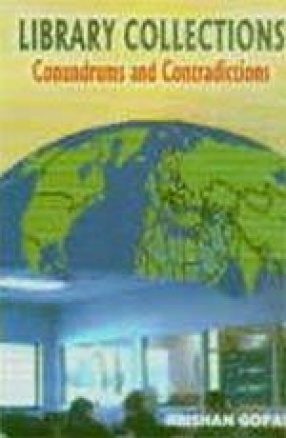
Today, we are living in the midst of a profound transition resulting from the digitisation of information, and all components of the information chain are in a state of flux. The parts played libraries and other information services are changing, and in many instances the boundaries which have demarcated the roles of these players have become blurred. Library collections, although ordinarily thought of in terms of books and serials, actually contain a very broad ...
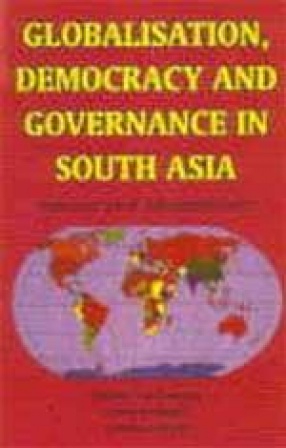
Issues and problems of governance, particularly in the third world countries have increasingly come under the gaze of social scientists and political activists alike. Ethnic conflicts, political movements, socio-religious conflicts and other violent upsurges on the one hand and widespread corruption, criminalization of politics, soft regimes, bureaucratic inefficiency and red tappism on the other are some of the more important manifestations of the problem ...

Technology is changing the nature of libraries and librarians, and it continues to exert a major influence on the strategic direction of libraries in society. Today, the library services are transitioning from local traditional collection to global resources provided on demand via the most advanced networking technologies. It is now possible to retrieve information independently of time zones and geographical location, and to obtain the most uptodate information ...
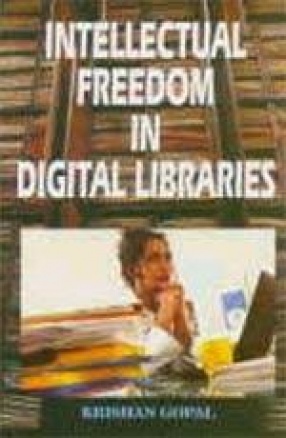
Digital libraries are indeed an important field of practice and research in the growing cyber culture. The role and function of the libraries in a digital world is uncertain and evolving. How libraries respond to the many implications of the information technologies will have a determining effect on their sustainability. Ethical issues of privacy, intellectual freedom, censorship, and knowledge organisation are of major concerns to libraries in today’s ...

Rapid advances in information processing, storage and communication technologies have revolutionised the role of worldwide libraries in disseminating information services to their users. As a result, libraries are facing new challenges, demands, expectations and a variety of information services from users tailored to their wants and needs. Libraries are reconsolidating their positions, redesigning their services and incorporating new technologies, upgrading ...

Intellectual property (IP) represents property of your mind or intellect. It can be an invention, trade mark, original design or the practical application of a good idea. In business terms, this means your proprietary knowledge –a key component of success in business today. It is often the edge which sets successful companies apart and as world markets become increasingly competitive, protecting your intellectual property becomes essential. Even though the term ...

Information is indispensable for the functioning of a true democracy. It is the currency that every citizen requires to participate in the life and governance of society. the greater the access of the citizen to information, the greater would be the responsiveness of government to community needs. The right to information has been recognized as a fundamental human right, intimately linked to respect for the inherent dignity of all human beings. No government can ...
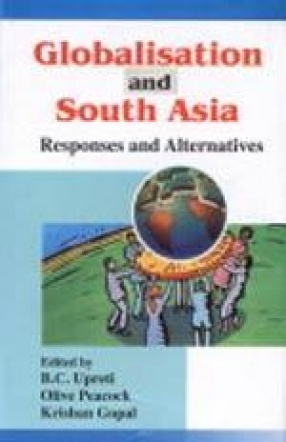
Globalisation, which has dominated the Post-Cold War International Order, is a comprehensive process with its wide-ranging implications for most of the countries of the world today. As a concept, globalisation is still debatable, largely because of the complexities of this phenomenon. Whether globalisation has to be viewed in terms of its historical continuity or as an exclusively post-Cold War process in difficult to ascertain. It is also confusing whether ...
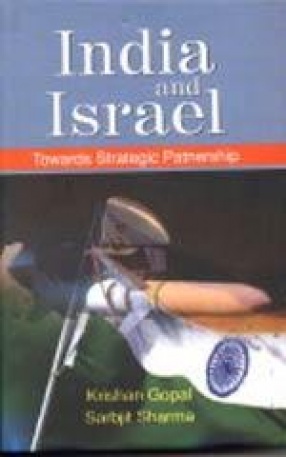
Indo-Israeli relations operate at four levels--political, strategic, military and economic. Strategic ties blossomed though unobtrusively after India's nuclear tests. For India, Israel-Pastmasters in counter-terrorism and military technology-was a natural ally. The Israelis in turn sought a new market for its sagging defence industry and the opportunity to cast anchor outside the box in an emerging world power with a large Muslim population and a counterfoil for ...
